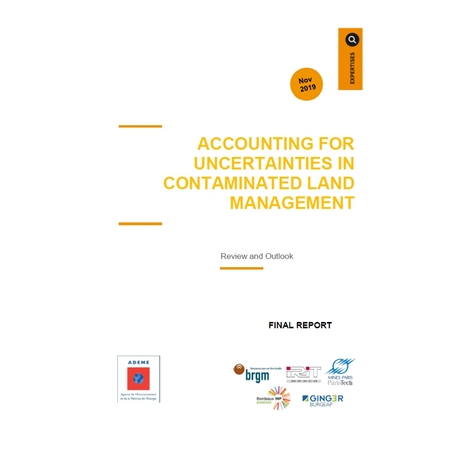Prise en compte des notions d'incertitude dans la gestion des sites et sols pollués
Etude/Recherche
Mis en ligne le : 16/09/2020

This report, which has no claim to completeness given the scope of the topic, seeks to identify sources of uncertainty at different stages of the data cycle in a context of contaminated land management, to describe approaches for addressing these uncertainties and also to identify some avenues of future research. The data cycle ranges from the sampling stage (soil, water, air, …), to using the collected information for defining site management options, through analysis, representation, interpretation, etc. It is clear from this synthesis that while there exists no "one-size-fits-all" method for addressing uncertainties in a context of contaminated land management, it is possible however to promote consistency between the choice of uncertainty treatment methods and the nature of the information that is actually available in practice. Such an effort should promote more reliable and robust contaminated land management options.
This report, which has no claim to completeness given the scope of the topic, seeks to identify sources of uncertainty at different stages of the data cycle in a context of contaminated land management, to describe approaches for addressing these uncertainties and also to identify some avenues of future research. The data cycle ranges from the sampling stage (soil, water, air, …), to using the collected information for defining site management options, through analysis, representation, interpretation, etc. It is clear from this synthesis that while there exists no "one-size-fits-all" method for addressing uncertainties in a context of contaminated land management, it is possible however to promote consistency between the choice of uncertainty treatment methods and the nature of the information that is actually available in practice. Such an effort should promote more reliable and robust contaminated land management options.
Documents associés
Etude/Recherche
Mis en ligne le : 16/09/2020
Accounting for uncertainties in contaminated land management